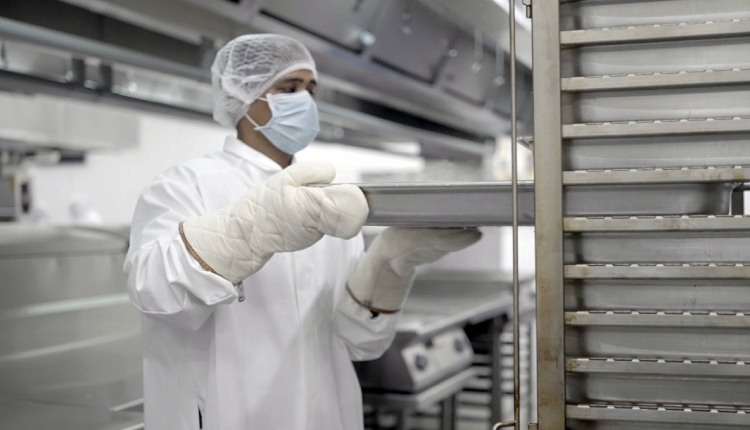SATS Opens its Largest Innovative Food Solutions Facility in Bengaluru, Powering the Ready-to-Eat Food Era in India
Built on the pillars of culinary expertise, using proven technologies to produce safe, authentic tasting, high-quality food products at scale
The ready-to-eat (RTE) food industry in India has grown significantly in recent years, owing to changing lifestyles, urbanisation, and rising disposable income. Convenience and time-saving benefits have made RTE meals increasingly popular among busy urban consumers, students, and working professionals. Based on SATS’ research, value sales of ready-to-eat meals in India will grow at a rate of 45% between 2021 and 2026, with a projected total of US$64 billion. RTE meals include all convenience food products that are pre-cooked and packaged in ready-to-eat formats, without prior processing or cooking.
According to the Ministry of Food Processing Industries (MOFPI) in India, 34 percent of the Indian population, driven by young consumers and millennials, will consume more RTE meals by 2028. According to the same report, the global demand for Indian RTE food products is also outpacing the domestic demand. To serve the demand for both domestic and international markets, SATS Food Solutions India (SFSI), a wholly owned subsidiary of SATS Ltd. (SATS), has opened its largest international food solutions facility in Bengaluru, India, complementing its existing large-scale food facilities in Singapore, China, Japan and Thailand.
The SATS India Food Solutions (SFSI) facility, funded with an investment of SG$61 million, is a frozen food manufacturing facility that incorporates culinary expertise, smart technology to produce tasty, nutritious food products according to the highest food safety standards. In addition to products, the food solutions facility, underpinned by innovation, will also offer packaging capabilities as part of the SATS’ global network of Experience and Innovation Centres.
Situated in close proximity to the Kempegowda International Airport in Bengaluru, the facility covers an area of 221,000 sq. ft and has the capacity to supply up to 40,000 kg of ready-to-eat food products per day to institutional catering, private labelling, and commercial clients, including large-scale food retailers, restaurants, cloud kitchens, cafes, and lounges in India, and international markets.
Stanley Goh, CEO of SATS Food Solutions said that the opening of this facility is an important milestone for the SATS food production network in Asia. “As Asia’s leading caterer for world-class airlines, commercial and public institutions, food services and retail, our customers trust SATS and our central kitchens in Singapore to deliver authentic tasting, high-quality food solutions at scale, both in-flight and on-ground. Based on commercial channels and consumer insights, our array of capabilities has grown over five decades to include the entire food value chain, from procurement to value-added processing, production, commercialisation and distribution.
“Replicating this capability from Singapore to India and leveraging knowledge gained from long-standing joint ventures with our aviation-centric partners in India, the SFSI team will use SATS’ domain knowledge in culinary expertise, product design, food technology, quality large scale production, and packaging innovation to develop, distribute and export the food products produced from the India central kitchen for India and international markets.”
“Our food production capacity in Asia, including the new SFSI facility, will enable us to serve up to 750,000 meals per day, powering the ready-to-eat food era for the SATS network of customers in Asia and beyond, enabling our purpose to feed and connect communities.”
“Today, we are pleased to announce that Bangalore-based Swiggy, India’s leading food delivery platform provider is one of the first brands to join our SATS customer network, to supply them with innovative food solutions across India.”
According to Rohit Kapoor, CEO, Food Marketplace, Swiggy: “We believe that SFSI holds tremendous promise to become a frontrunner in large-scale food production in India. Their culinary expertise and food technology know-how ensures food safety, appearance, nutrition and taste and aligns with our own commitment to deliver the best value to our customers. We look forward to exploring ways in which we can work collaboratively.”
Built with strong culinary expertise, using proven food technologies
Sagar Dighe, Director and CEO, SATS Food Solutions India said that the company is world re-known for its culinary expertise, crafting authentic taste, using proven food technologies to deliver tasty, nutritious and safe food offering.
“Food safety, integrity and quality is paramount in SATS kitchens and we have attained the India quality licence, FSSAI. International certifications like as FDA, CFIA, FSSC22000 Food Safety Management system (FSMS) and Medina are now being completed to ensure consistency with our other kitchens.
“We also use industry-proven technologies such as the Internet-of-things (IoT) to enable our teams enhance and monitor kitchen efficiencies while ensuring food safety and quality meet the highest standards,” said Sagar.
For example, Internet-of-things (IoT) sensors and sensor-based lighting systems have been installed in the facility for management to monitor and conserve energy usage in real-time. These IoT-powered sensors also monitor the facility’s ambient temperature, humidity, air quality and utilities in the facility such as cold stores and cooking stations, to ensure food integrity and safety. To illustrate, IoT allows pre-programmed cooking processes to be monitored via live dashboards, with alerts automatically triggered if cooking timings and temperature settings deviate from pre-set recipes. Using IoT sensors, the temperature at which raw protein and cooked food are stored ensures food safety, high-quality, taste and texture.
The food facility also uses technology to predict risks, improve traceability and transparency of key product components, and increase data reliability. For example, by creating a digital record of a food product’s journey from farm to table, the kitchen will be able to trace important information such as ingredient sources, harvest dates, transportation methods, and storage conditions, ensuring food security.
The facility has also implemented stringent safety guidelines, such as separating areas into zones and employing color-coded floors to ensure that supplies and food production are managed correctly.
Design for sustainability
On sustainability, Sagar added: “When we announced plans to construct the facility in India, we factored environmentally responsible building practices in the building design and introduced multiple sustainable initiatives including energy efficiency, water conservation, indoor air quality among others, to reduce our carbon footprint.
“To date, our facility uses rainwater harvesting and advanced water recycling systems to reduce reliance on ground water by up to 50 percent. We also introduced ammonia, a natural refrigerant, for our cooling systems which is more environmentally-friendly than other types of refrigerants.”
“Our plans also include equipping the roof with solar panel loads to generate about a fifth of our power requirements. In addition, we are also looking to minimise waste handling and costs with a wet waste dehydration machine” said Sagar.
Day care to support working parents
To prepare for the full operations of the facility, the company has employed 230 staff to date, the majority of whom are from neighbouring areas. Of these, more than 50 percent are women. To encourage and support young families in the company, the team in SFSI has created a day care facility to entice working parents and in particular, mothers back to the workforce. The day care facility will also include separate rooms for mothers to nurse and bond with their infants.
“We value our employees and want them to do their best, and we believe that this benefit will help them achieve work-life balance, increase their productivity and raise their engagement at work,” Sagar said.


Comments are closed.